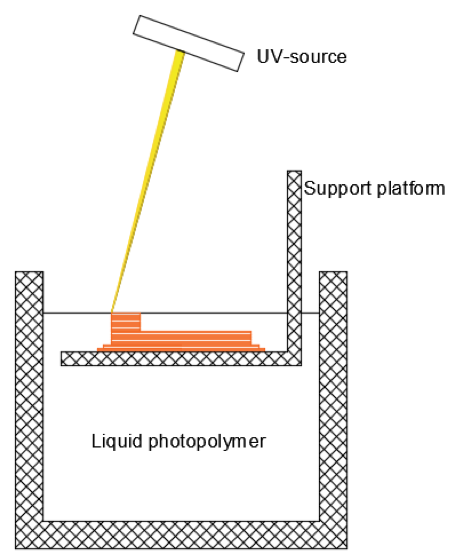
Stereolithography (SLA) is a 3D printing technique that uses ultraviolet (UV) light to build a product of photocurable resin, layer by layer. The pattern is scanned by a UV laser on the resin to polymerize the material in the shape of the product. The variety of resins that can be used and the ability to produce complex shapes makes the SLA process a very versatile method.
The process is affected by the light intensity, illumination time, temperature, layer thickness and many more. These parameters can have an effect on the properties of the product, making the prediction of these properties very difficult. Therefore optimization of product properties is often done by trial and error.
By studying the influence of the process parameters on the mechanical properties of the product, the predictability of the properties can be improved. For this purpose, an experimental setup is built within the group, making it possible to study a single layer of UV-cured resin. This project focusses on the characterization of a methacrylate resin, using this setup. The influence of initial exposure time, UV postcuring, and thermal postcuring on the material properties is studied. The properties of the methacrylate are compared to the properties of an acrylate, determined in previous research. This comparison is used to see if there are certain trends, which could be described by existing material models.
Contact
-
Ali SoekhoeJasper van BeaumontVeenstraweg2564CJ Beegden
-
Guusje Dorsmandr. Thom Gervais MAKwaadlandsteeg1013PT Oentsjerk
-
bacc. Joshua Özer LLBAmir SmeetsJansenring9752GE Zevenbergschen Hoek
-
dr.h.c. Stijn van HollandRowan PeetersSaiddreef3319RG Renesse